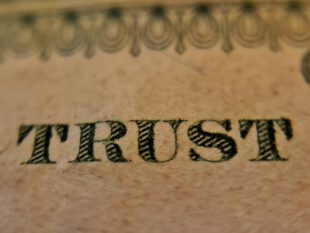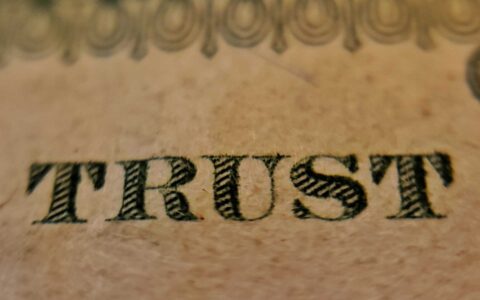Dealing with Trust Issues in Relationships
John Lakvold
Successful relationships have several ingredients: friendship, an overwhelming flow of fondness and admiration between partners, turning to your partner for communication and communicating your needs, general positive sentiment for the relationship, and quickness to make amends when conflict occurs.
It also includes discussing problems with one another as they occur, the ability to remain calm while discussing stressful matters, having shared goals and values, supporting each other in achieving personal dreams, rituals of connection, trust, self-commitment, commitment to your partner, commitment to the relationship, and equality in the relationship.
Gottman and Gottman (n.d.) believe that trust and commitment form the two walls that the relationship together. Trust is the cornerstone upon which the relationship is built. Without trust in the relationship, intimacy cannot be developed. Thus, the relationship is doomed to fail.
In a relationship, trust is built through reliability, security, honesty, and transparency. Reliability means several things. Reliable people match their words with their actions. Reliable individuals remain objective by giving the facts without coloring them with bias or a self-serving agenda. Reliable people respect your time by being prompt. Reliable individuals admit when they fail and are dependable to fix the problem.
Reliable people understand discretion and keep confidences. Others know where reliable individuals stand because they stick to their values. Reliable individuals are consistent in how they treat other people because they treat everyone equally. Reliable people frequently act selflessly, because they value others’ needs as important. As a result, reliable individuals are known widely for their reliability, because their reputation speaks for itself.
As a relationship progresses to marriage, security must be built. Couples in a secure relationship always have complete confidence in their partner. Each partner must have the ability to share his or her dark secrets with his or his partner without feeling judged. Security means that a partner can be completely vulnerable with his or her partner.
A safe partner is not likely to intentionally use the other partner’s triggers and vulnerabilities against him or her. Like reliability, security fosters a sense of stability. A partner’s needs are expressed, acknowledged, and heard. Through security, partners become confident that the other partner will support them in achieving their needs, dreams, and goals. Even though times get tough, partners in a secure relationship will stand by each other.
A safe relationship exudes acceptance. Partners who value security will attempt to heal the other partner’s insecurities from his or her lack of self-esteem or self-worth. Secure relationships have clear, unambiguous expectations for the relationship. In a secure relationship, partners feel comfortable resolving communication issues.
A couple in a secure relationship will not judge themselves against other relationships in similar situations. They realize that life is not a fairy tale with no sad endings. Instead, a couple in a secure relationship believes that they are responsible for making their relationship as ideal as possible.
The apostle Paul, describing the aspects of love, states, “Love does not delight in evil but rejoices with the truth” (I Corinthians 13:6, NIV). Dishonesty and lying are enemies of the truth. Nothing erodes trust faster than dishonesty and lying. Once dishonesty and lying enter a relationship, it becomes difficult to rebuild trust.
With honesty, partners can become their authentic selves. Being your authentic self allows you to be vulnerable and open without wearing a mask, censoring yourself, or maneuvering your words carefully. Honesty can create uneasiness and disagreements, but a relationship will survive this period of disagreement. In an honest relationship, one partner states his or her reality knowing that the relationship will still flourish, and the other partner will still accept him or her.
Honesty also prevents mind-reading, a common cognitive distortion. Mind-reading occurs when one person expects the other person to know his or her mind. Even if a couple has been married for forty years, they still do not know what each other is thinking. Honest partners will share their individual needs and discuss in an open environment what is functioning and what is malfunctioning in the relationship.
 Like blood in one’s body, honesty is the coagulating force that prevents serious damage to the relationship, because it hardens the bond between the partners. When a strong bond is formed, verbal and physical intimacy follows. The more intimacy between the partners, the more personal and relationship satisfaction exists.
Like blood in one’s body, honesty is the coagulating force that prevents serious damage to the relationship, because it hardens the bond between the partners. When a strong bond is formed, verbal and physical intimacy follows. The more intimacy between the partners, the more personal and relationship satisfaction exists.
In addition to truth, it is necessary to “speak [it] in love” as the apostle Paul wrote in Ephesians 4:15. An individual may be truthful with another person, but the other person may become wounded by the words.
I once heard an acronym – HEART – describing how to speak the truth in love: “Is it Helpful?” “Is it Encouraging or Empathizing?” “Does it Assert a need,” “Is it Redeeming?” or “Is it Tender and Timely?” If it is truthful, but it does not meet the rest of the HEART acronym, it is best left unsaid.
Overlapping with honesty is transparency. Transparency means not keeping secrets. Keeping secrets does not apply to gift-giving or surprising your partner. However, lack of transparency withdraws trust and goodwill in the relationship. Once the truth is exposed, it is more painful than disclosing it.
Lack of transparency creates a second lie when lying becomes a habit. Individuals begin to lie to themselves and justify their behaviors. As a result, when individuals lie to themselves on a continuing basis, they can become something that they are not. Further complications occur when lies are told to cover previous lies. When the lie is discovered, it will amplify the impact of the original lie.
Transparency means that partners are responsible and accountable for their actions and behaviors. Being transparent means that you have a legitimate reason for your actions and take responsibility for them. Being transparent requires being prepared to answer for your actions.
If possible, being transparent compels one partner to disclose to the other partner before the other partner discovers the potential secret, becomes doubtful, and discovers the secret. Being proactive in your transparency is the best practice even if the secret benefits the relationship.
For example, I planned a vacation for my wife several years ago and withdrew a significant amount of money from our bank account. The same day, I informed my wife that I had withdrawn some money for a surprise vacation for her. If I was not transparent with her, her potential reaction could have led to needless heartache and unnecessary misunderstandings.
Transparency creates dependability. Partners share their schedules. Transparent partners share who they are with, where they are, what they are doing, and when they will be at a certain location. If there is a variation in the schedule, a dependable partner shares that information with his or her partner, even though he or she may not feel that the information is necessary. Stable relationships are created from structure and reliability.
In a transparent relationship, partners will disclose anything, anywhere, and at any time. Although inconvenient and uncomfortable, a partner can use his or her password(s) to check the other partner’s social media, bank, and email accounts. In a transparent relationship, there is an implicit agreement that transparency is a core value in the relationship.
Transparency permits a couple to communicate with one another without becoming defensive. In a non-defensive relationship, both partners can speak and know that each partner is invested in listening to each other. When there is a misunderstanding between the partners, there is a safe space allowing each partner to clarify the information being given and received.
Transparency also allows each partner to withhold information about him or herself when he or she feels uncomfortable sharing. However, withholding information is not the same as keeping a secret, because the information is not about one’s actions, behaviors, or communication with an outside party.
To explain this point, allow me to give you a personal illustration. One of our wedding gifts was a green towel. After several years of marriage, my wife confessed to me that she never liked that towel, because it brought back a painful memory. Because of our transparency, I took the towel, threw it away, and emphasized her discomfort and reluctance to share that memory with me.
Trust is earned over time. It takes only one poor decision to destroy it. When trust is broken, it is like the story of Humpty Dumpty. Once a person takes a great fall, a great couple counselor may not be able to put a relationship back together again.
Relationships are best fortified with trust. Healthy relationships are as strong and tall as the Great Wall of China. Healthy couples protect that relationship with everything they have. Trust-building is important to build a relationship or rebuild a fragmented relationship.
If you want to learn how to build trust in your relationship or you need to reinforce the crumbling walls in your relationship, please reach out to one of our excellent counselors for support and direction.
“Trust”, Courtesy of Joshua Hoehne, Unsplash.com, CC0 License






